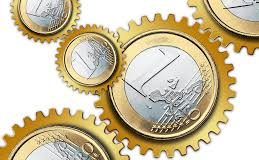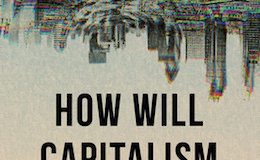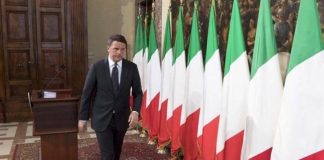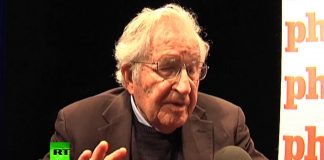Euro
Trump declares War on Europeans
US President Donald Trump’s likely pick for ambassador to the European Union has said that the single currency “could collapse” in the next year...
L ’Euro contre l’Europe
par Jacques Sapir
4 Novambre 2016
L’Union européenne traverse aujourd’hui crise majeure. Il s’agit d’une crise économique mais aussi d’une crise d’identité. A l’origine de cette crise...
Is capitalism destroying himself or us and democracy?
More than four years on, we know that in 2012 the political fallout was only just beginning. It was in December 2011 that David Cameron reopened the European question by opting out of the new ‘fiscal compact’ drawn up by Angela Merkel and Nicolas Sarkozy with the aim of enforcing budget discipline across the EU. In the US in spring 2012, Mitt Romney emerged as the candidate from the Republican primaries, but the freakshow anticipated the Trump campaign to come. In Italy the ousting of Berlusconi in a backroom coup in November 2011 and the installation of the ‘unpolitical’ economist Mario Monti as prime minister set the stage for the emergence of Beppe Grillo and Five Star in the local elections of May 2012. In France as the fiscal compact began to bite, François Hollande’s presidency was dead almost before it had started.
Grèce : Les banques sont à l’origine de la crise
Cette étude démontre que la crise grecque qui a éclaté en 2010 est d’origine bancaire privée. Elle n’est pas le résultat d’un excès de dépenses publiques. Le soi-disant plan d’aide à la Grèce a été conçu pour servir les intérêts des banquiers privés et ceux des pays qui dominent la zone euro. L’adoption de l’euro par la Grèce a joué un rôle important dans les facteurs qui ont contribué à la crise. L’analyse contenue dans ce texte a été présentée à Athènes le 6 novembre 2016 lors de la réunion de la Commission pour la vérité sur la dette publique grecque.
Preventing The Next Eurozone Crisis Starts Now
European leaders have devoted scant attention to the future of the eurozone since July 2012, when Mario Draghi, the European Central Bank’s president, famously committed to do “whatever it takes” to save the common currency. For more than four years, they have essentially subcontracted the eurozone’s stability and integrity to the central bankers. But, while the ECB has performed the job skillfully, this quiet, convenient arrangement is coming to an end, because no central bank can solve political or constitutional conundrums.
Italy – the Power of the People
The reform, which intended to eliminate the model known as ‘perfect bicameralism’ and reduce the amount of members of the Senate, among other things, didn’t reach the majority of votes, and therefore Renzi, at midnight in Italy, announced on TV that he will officially submit his resignation to the President of the Republic. ‘The Italian people have spoken unequivocally (…) I lost and I will leave my seat. My experience in government has come to an end’, the Prime Minister said in press round filled with journalists. Renzi expressed the need to make reforms in Italy, and called to keep on fighting.
Report on the Referendum in Italy
December 4th was a great day in Italy. We hoped such an outcome, but did not expect it. When we saw so much turnout by voters we were not sure how to interpret it, because the media and the government had claimed that more voters would result in a higher percentage of “yes” to the constitutional reform. Well, it was the other way round. An unprecedented (for a referendum) participation rate brought to a clear rejection of the reform proposal, and of the government.
EU may fall apart due to failed neo-liberal policies – Noam...
The surge in right-wing and anti-establishment sentiments as a result of failed neo-liberal policies in Europe is likely to lead to collapse of the EU in “a tragic development,” prominent American linguist, scholar and activist Noam Chomsky told RT.
Angry Europe: “Revolt” visits Italy (and Austria). But where is it...
BEFORE American voters—especially white, male, rural and older ones—carried Donald Trump to victory in America’s presidential election, aggrieved British voters with a similar profile voted to leave the European Union. Equally surly voters in France have been flocking to Marine Le Pen of the far-right National Front for months; she is tipped to make the run-off in next year’s presidential election. Alternative for Germany, an anti-immigrant party, is picking up support ahead of a federal election in Germany, also in 2017.
Matteo Salvini to Alexander Dugin on Italy, EU and Trump
This election is great news. A lesson in democracy. In Trump's program, there are such theses as putting an end to wars and the export of democracy around the whole world, revising NATO and the UN’s roles, and pursuing friendly relations with Russia. Great attention is also paid to what is happening in the United States: the war against illegal immigration and the introduction of proportional taxation (a flat tax).









